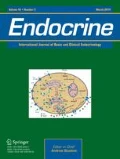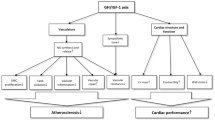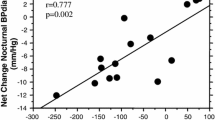Abstract
Background and aims
Growth hormone deficiency (GHD) is a condition associated with increased cardiovascular risk and insulin-resistance. Oxidative stress (OS) could be a mechanism underlying both these phenomena. In order to investigate plasma antioxidant defenses in such condition, we evaluated adults with GHD, compared with controls and metabolic syndrome patients (MetS), studying plasma total antioxidant capacity (TAC) and coenzyme Q10 (CoQ10, lipophilic antioxidant) levels, both in its oxidized and reduced forms, correlating this data with metabolic and hormonal pattern.
Materials and methods
In this case-control study, 51 GHD, 36 controls, and 35 MetS were enrolled. An evaluation of hormonal and metabolic parameters was performed. TAC was measured using the system metmyoglobin -H202 and the chromogen ABTS, whose radical form is spectroscopically revealed; latency time (LAG) in the appearance of ABTS● is proportional to antioxidant in sample. CoQ10 was assayed by electrochemical method.
Results
Despite HOMA index was higher in both GHD and MetS (2.2 ± 0.3 and 3.1 ± 0.3 vs. 1.2 ± 0.2 in controls), only in MetS we observed lower LAG levels (64.5 ± 3.1 s vs. 82.8 ± 5.8 in GHD and 80.6 ± 6.6 in controls), suggesting an increased consumption of antioxidants. LAG significantly correlated with uric acid only in MetS (r 2 = 0.65, p < 0.001), suggesting a different pattern of antioxidants. CoQ10 exhibited a trend toward lower levels in GHD, although not significant.
Conclusions
Our data indicate that GHD, although sharing with MetS various metabolic features, including increased HOMA levels, showed a different pattern of plasma antioxidants, suggesting inadequate reactivity toward radical production rather than an antioxidants consumption as in MetS.


Similar content being viewed by others
References
A. Colao, P. Marzullo, C. Di Somma, G. Lombardi, Growth hormone and the heart. Clin. Endocrinol. (2001). https://doi.org/10.1046/j.1365-2265.2001.01218.x
S.A. Beshyah, A. Henderson, R. Niththyanathan, P. Sharp, W. Richmond, D.G. Johnston, Metabolic abnormalities in growth hormone deficient adults: carbohydrate tolerance and lipid metabolism. Endocrinol. Metab. 1, 173–180 (1994)
T.A.M. Abdu, R. Neary, T.A. Elhadd, M. Akber, R.N. Clayton, Coronary risk in growth hormone deficient hypopituitary adults: increased predicted risk is due largely to lipid profile abnormalities. Clin. Endocrinol. (2001). https://doi.org/10.1046/j.1365-2265.2001.01320.x
S.A. Beshyah, C. Freemantle, E. Thomas, B. Page, M. Murphy, D.G. Johnston, Abnormal body composition and reduced bone mass in growth hormone deficient hypopituitary adults. Clin. Endocrinol. (1995). https://doi.org/10.1111/j.1365-2265.1995.tb01860.x
L. Lönn, G. Johansson, L. Sjöström, H. Kvist, A. Odén, B. Bengtsson, Body composition and tissue distributions in growth hormone deficient adults before and after growth hormone treatment. Obes. Res. (1996). https://doi.org/10.1002/j.1550-8528.1996.tb00511.x
J.O. Jørgensen, S.A. Pedersen, L. Thuesen, J. Jørgensen, T. Ingemann-Hansen, N.E. Skakkebaek, J.S. Christiansen, Beneficial effects of growth hormone treatment in GH-deficient adults. Lancet (1989). https://doi.org/10.1016/S0140-6736(89)92328-3
S.M. Libber, L.P. Plotnick, A.J. Johanson, R.M. Blizzard, P.O. Kwiterovich, C.J. Migeon, Long-term follow-up of hypopituitary patients treated with human growth hormone. Medicine (1990). https://doi.org/0025-7974/90/0046-0055$02.00/0
J.O. Johansson, K. Landin, L. Tengborn, T. Rosen, B.A. Bengtsson, High fibrinogen and plasminogen activator inhibitor activity in growth hormone-deficient adults. Arter. Thromb. (1994). https://doi.org/10.1161/01.ATV.14.3.434
C.R. Palmiero, I.K. Anand R. Dardi, N. Balasubramaniyam, M.D. Schwarcz, I.A. Weiss, Growth hormone and the cardiovascular system. Cardiol. Rev. (2012). https://doi.org/10.1097/CRD.0b013e318248a3e1
J. Verhelst, R. Abs, Cardiovascular risk factors in hypopituitary GH-deficient adults. Eur. J. Endocrinol. (2009). https://doi.org/10.1530/EJE-09-0291
M. Leonsson, J. Hulthe, G. Johannsson, O. Wiklund, J. Wikstrand, B.A. Bengtsson, J. Oscarsson, Increased interleukin-6 levels in pituitary-deficient patients are independently related to their carotid intima-media thickness. Clin. Endocrinol. (2003). https://doi.org/10.1046/j.1365-2265.2003.01832.x
R. Pérez, M. García-Fernández, M. Díaz-Sánchez, J.E. Puche, G. Delgado, M. Conchillo, J. Muntané, I. Castilla-Cortázar, Mitochondrial protection by low doses of insulin-like growth factor-I in experimental cirrhosis. World J. Gastroenterol. (2008). https://doi.org/10.3748/wjg.14.2731
J.E. Puche, M. García-Fernández, J. Muntané, J. Rioja, S. González-Barón, I. Castilla-Cortázar, Low doses of insulin-like growth factor-I induce mitochondrial protection in aging rats. Endocrinology (2008). https://doi.org/10.1210/en.2007-1563
M. García-Fernández, G. Delgado, J.E. Puche, S. González-Barón, I.C. Cortázar, Low doses of insulin-like growth factor I improve insulin resistance, lipid metabolism, and oxidative damage in aging rats. Endocrinology (2008). https://doi.org/10.1210/en.2007-1190
A. Mancini, R. Festa, V. Di Donna, E. Leone, G.P. Littarru, A. Silvestrini, E. Meucci, A. Pontecorvi, Hormones and antioxidant systems: role of pituitary and pituitary-dependent axes. J. Endocrinol. Invest. (2010). https://doi.org/10.1007/BF03346615
C.D. Rollo, J. Carlson, M. Sawada, Accelerated aging of giant transgenic mice is associated with elevated free radicals process. Can. J. Zool. 74, 606–620 (1996)
H.M. Brown-Borg, A.M. Bode, A. Bartke, Antioxidative mechanism and plasma growth hormone levels: potential relationship in the aging process. Endocrinology (1999). https://doi.org/10.1385/ENDO:11:1:41
A. Mancini, G.E. Martorana, M. Magini, R. Festa, S. Raimondo, A. Silvestrini, N. Nicolotti, A. Mordente, M.C. Mele, G.A.D. Miggiano, E. Meucci, Oxidative stress and metabolic syndrome: effects of a antioxidants enriched diet on insulin resistance. Clin. Nutr. (2015). https://doi.org/10.1016/j.clnesp.2014.11.002
G.A. Aguirre, J.R. De Ita, R.G. de la Garza, I. Castilla-Cortazar, Insulin-like growth factor-1 deficiency and metabolic syndrome. J. Transl. Med. (2016). https://doi.org/10.1186/s12967-015-0762-z
C. Rice-Evans, N.J. Miller, Total antioxidant status in plasma and body fluids. Methods Enzymol. (1994). https://doi.org/10.1016/0076-6879(94)34095-1
G.P. Littarru, Energy and Defence (CESI, Roma1994)
A. Giustina, W. B. Weherenberg, Influence of thyroid hormones on the regulation of growth hormone secretion. Eur. J. Endocrinol. (1995). https://doi.org/10.1530/eje.0.1330646
G. Mazziotti, A. Giustina, Glucocorticoids and the regulation of growth hormone secretion. Nat. Rev. Endocrinol. (2013). https://doi.org/10.1038/nrendo.2013.5
D.R. Matthews, J.P. Hosker, A.S. Rudenski, B.A. Naylor, D.F. Treacher, R.C. Turner, Homeostasis model assessment: insulin resistance and beta-cell function from fasting plasma glucose and insulin concentrations in man. Diabetologia (1985). https://doi.org/10.1007/BF00280883
E. Meucci, D. Milardi, A. Mordente, G.E. Martorana, E. Giacchi, L. De Marinis, A. Mancini, Total antioxidant capacity in patients with varicoceles. Fertil. Steril. (2003). https://doi.org/10.1016/S0015-0282(03)00404-7
G.P. Littarru, L. Tiano, Clinical aspects of coenzyme Q10: an update. Curr. Opin. Clin. Nutr. Metab. Care (2005). https://doi.org/10.1097/01.mco.0000171123.60665.16
H.M. Brown-Borg, A.M. Bode, A. Bartke, Antioxidative mechanisms and plasma growth hormone levels: potential relationship in the aging process. Endocrine (1999). https://doi.org/10.1385/ENDO:11:1:41
S.J. Hauck, J.M. Aaron, C. Wright, J.J. Kopchick, A. Bartke, Antioxidant enzymes, free-radical damage, and response to paraquat in liver and kidney of long-living growth hormone receptor/binding protein gene-disrupted mice. Horm. Metab. Res. (2002). https://doi.org/10.1055/s-2002-34787
S. Skhanov, Y. Higashi, S.Y. Shai, C. Blackstock, Z. Galvez, C. Vaughn, J. Titterington, P. Delafontaine, Differential requirement for nitric oxide in IGF-1-induced anti-apoptotic, anti-oxidant and anti-atherosclerotic effects. FEBBS Lett. (2001). https://doi.org/10.1016/j.febslet.2011.08.029
J. Titterington, S. Skhanov, Y. Higashi, C. Vaughn, C. Bowres, P. Delafontaine, Growth hormone releasing peptide-2 suppressed vascular oxidative stress in ApoE-/- mice but does not reduce atherosclerosis. Endocrinology (2009). https://doi.org/10.1210/en.2009-0283
T. Matsuda, H. Saito, T. Inoue, K. Fukatsu, I. Han, S. Furukawa, S. Ikeda, T. Muto, Growth hormone inhibits apoptosis and up-regulates reactive oxygen intermediates production by human polymorphonuclear neutrophils. J. Parenter. Enter. Nutr. (1998). https://doi.org/10.1177/0148607198022006368
A. Sanz, R. Gredilla, R. Pamplona, M. Portero-Otin, E. Vara, J.A.F. Tresguerres, G. Barja, Effect of insulin and growth hormone on rat heart and liver oxidative stress in control and caloric restricted animals. Biogerontology (2005). https://doi.org/10.1007/s10522-004-7380-0
F.R.F. Seiva, G.M.X. Ebaid, A.V.B. Castro, K. Okoshi, A. Nascimiento, K.K.H. Rocha, C.R. Padovani, A.C. Cicogna, E.L.B. Novelli, Growth hormone and heart failure: oxidative stress and energetic metabolism in rats. Growth Horm. IGF Res. (2008). https://doi.org/10.1016/j.ghir.2007.11.002
A. Mohn, D. Marzio, C. Giannini, R. Capanna, M. Marcovecchio, F. Chiarelli, Alterations in the oxidant-antioxidant status in prepubertal children with growth hormone deficiency: effect of growth hormone replacement therapy. Clin. Endocrinol. (2005). https://doi.org/10.1111/j.1365-2265.2005.02378.x
M. Scacchi, E. Valassi, A.I. Pincelli, L.M. Fatti, F.P. Giraldi, P. Ascoli, R. Viarengo, B. Cestaro, F. Cavagnini, R. Cazzola, Increased lipid peroxidation in adult GH-deficient patients: effects of short-term GH administration. J. Endocrinol. Invest. (2006). https://doi.org/10.1007/BF03349194
J.C. Smith, D. Lang, J. McEneny, L.M. Evans, M.F. Scanlon, I. Young, J. Davies, Effects of GH on lipid peroxidation and neutrophil superoxide anion-generating capacity in hypopituitary adults with GH deficiency. Clin. Endocrinol. (2002). https://doi.org/10.1046/j.1365-2265.2002.01493.x
M. Holzenberger, J. Dupont, B. Ducos, P. Leneuve, A. Geoloen, P.C. Even, P. Cervera, Y. Le Bouc, Igf-1 receptors regulates lifespan and resistance to oxidative stress in mice. Nature (2003). https://doi.org/10.1038/nature01298
L. Fontana, L. Partridge, V.D. Longo, Extending healthy life span from yeast to humans. Science (2010). https://doi.org/10.1126/science.1172539
Y. Suh, G. Atzmon, M.O. Cho, D. Hwang, B. Liu, D.J. Leahy, N. Barzilai, P. Cohen, Functionally significant insulin growth factor I receptor mutations in centenarians. Proc. Natl. Acad. Sci. USA (2008). https://doi.org/10.1073/pnas.0705467105
J. Guevara-Aguirre, P. Balasubramanian, M. Guevara-Aguirre, M. Wei, F. Madia, C.W. Cheng, D. Hwang, A. Martin-Montalvo, J. Saavedra, S. Ingles, R. de Cabo, P. Cohen, V.D. Longo, Growth hormone receptor deficiency is associated with a major reduction in pro-aging signaling, cancer, and diabetes in humans. Sci. Transl. Med. (2011). https://doi.org/10.1126/scitranslmed.3001845
L. Giovannini, G. Tirabassi, G. Muscogiuri, C. Di Somma, A. Colao, G. Balercia, Impact of adult growth hormone deficiency on metabolic profile and cardiovascular risk. Endocr. J. 62(12), 1037–1048 (2015). https://doi.org/10.1507/endocrj.EJ15-0337
E. Bonora, G. Targher, M. Alberiche, R.C. Bonadonna, F. Saggiani, M.B. Zenere, T. Monauni, M. Muggeo, Homeostasis model assessment closely mirrors the glucose clamp technique in the assessment of insulin sensitivity: studies in subjects with various degrees of glucose tolerance and insulin sensitivity. Diabetes Care (2000). https://doi.org/10.2337/diacare.23.1.57
P.A. Sarafidis, A.N. Lasaridis, P.M. Nilsson, M.I. Pikilidou, P.C. Stafilas, A. Kanaki, K. Kazakos, J. Yovos, G.L. Bakris, Validity and reproducibility of HOMA-IR, 1/HOMA-IR, QUICKI and McAuley’s indices in patients with hypertension and type II diabetes. J. Hum. Hypertens. (2007). https://doi.org/10.1038/sj.jhh.1002201
D. Capalbo, A. Esposito, N. Improda, M.G. Wasniewska, R. Di Mase, F. De Luca, D. Bruzzese, M. Salerno, Glucose homeostasis in GHD children during long-term replacement therapy: a case-control study. Endocrine (2017). https://doi.org/10.1007/s12020-017-1408-0
A. Galimov, A. Hartung, R. Trepp, A. Mader, M. Flück, A. Linke, M. Blüher, E. Christ, J. Krützfeldt, Growth hormone replacement therapy regulates microRNA-29a and targets involved in insulin resistance. J. Mol. Med. (2017). https://doi.org/10.1007/s00109-015-1322-y
Acknowledgements
We would like to thank Mr. Primiano Palma for his skillful assistance.
Author information
Authors and Affiliations
Corresponding authors
Ethics declarations
Conflict of interest
The authors declare that they have no competing interests.
Rights and permissions
About this article
Cite this article
Mancini, A., Di Segni, C., Bruno, C. et al. Oxidative stress in adult growth hormone deficiency: different plasma antioxidant patterns in comparison with metabolic syndrome. Endocrine 59, 130–136 (2018). https://doi.org/10.1007/s12020-017-1468-1
Received:
Accepted:
Published:
Issue Date:
DOI: https://doi.org/10.1007/s12020-017-1468-1




